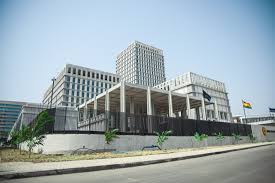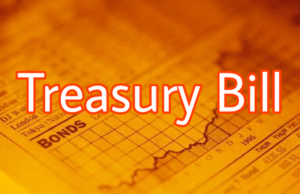ISSER Warns Ghana Struggles with Fiscal Challenges Amidst Modest 2025 Growth Targets

The Institute of Statistical, Social and Economic Research (ISSER) has issued a cautionary warning about the potential rise in poverty levels in Ghana if the country’s economic growth remains sluggish. Although economic activity is expected to rebound in 2024, ISSER predicts that Ghana’s growth will decelerate significantly in 2025, mainly due to reduced capital expenditure, strict fiscal policies, and delays in implementing key economic reforms.
During an address to stakeholders about the nation’s economic future, ISSER Director, Professor Peter Quartey, highlighted that Ghana experienced a GDP growth rate of 5.7% in 2024, driven by sectors such as ICT, construction, and mining. However, he projected that the economy’s growth would slow down to 4% in 2025, falling below the Sub-Saharan Africa average of 4.2%. The main contributors to this forecasted slowdown include a significant reduction in capital investment, which is expected to be just 2.5% of GDP, as well as delays in the implementation of the government’s much-publicized 24-hour economy policy. While Professor Quartey acknowledged that the 24-hour economy could eventually yield results, he emphasized that it was a long-term strategy that would require time to bear fruit.
The country’s fiscal outlook remains concerning, as Ghana missed its 2024 revenue and deficit targets. A fiscal deficit of 7.9% was recorded, which was far above the revised target of 4.2%. Meanwhile, government revenue collected amounted to only 15.9% of GDP, falling short of the expected 17.4%. This revenue shortfall, combined with increased expenditure, further stressed the country’s already stretched fiscal resources. Although Ghana has made strides in reducing its debt-to-GDP ratio—currently standing at 61.8%—thanks to debt restructuring efforts, Professor Quartey warned that the country is still a long way from meeting the IMF’s recommended target of 55%. He cautioned that complacency in managing debt could lead Ghana back into a fiscal crisis, particularly if the government continues to rely heavily on domestic borrowing to finance its deficit. This approach could crowd out private sector access to credit, increase interest rates, and suppress economic growth.
Further concerns were raised about the government’s ambitious target for increasing tax revenue, especially the goal to boost income and property tax collections by 45.4% in 2025. Professor Quartey argued that this target is overly optimistic and questioned what new measures would be put in place to achieve such a large increase in revenue. While he acknowledged the potential benefits of utilizing digital systems to improve tax compliance, he stressed that any new tax measures should be supported by thorough research and be closely monitored through periodic reviews. He warned that without such an approach, there would be a risk of revenue shortfalls, which could prompt the government to introduce new taxes mid-year, potentially straining the economy further.
In addition to these challenges, Professor Quartey pointed out the inefficiencies in Ghana’s tax refund system, which he believes discourages businesses from paying their taxes. If businesses lack confidence that they will receive their refunds, they may be less likely to comply with the tax laws, exacerbating the problem of revenue collection. He stressed that ensuring the accessibility and reliability of tax refunds was crucial to maintaining high levels of compliance.
The broader economic picture also raised concerns, particularly regarding key sectors such as agriculture and industry, which are essential for job creation and economic stability. Agriculture, which is one of Ghana’s largest employers, grew by just 2.8% in 2024 and is projected to grow at a modest 3.1% in 2025. The industrial sector is also expected to experience a significant slowdown, with growth expected to fall from 7.1% in 2024 to just 3.8% in 2025. The services sector is also forecasted to experience a similar decline. For Ghanaian households, this slowdown could lead to fewer job opportunities and an increased cost of living, particularly as the government seeks to ramp up domestic revenue collection.
Professor Quartey warned that the government’s proposed 45.4% increase in income and property tax revenue could place additional strain on household budgets, especially if not carefully managed. He called for greater fiscal discipline and the strict enforcement of fiscal responsibility laws. Furthermore, he stressed the importance of regular progress reviews to ensure the country’s fiscal policies are on track and to avoid sudden budgetary shocks later in the year. He urged the government to abandon ineffective, data-deficient policies and adopt more robust, research-driven approaches to restore macroeconomic stability.
In conclusion, Professor Quartey’s analysis paints a troubling picture of Ghana’s economic future. Without a careful reassessment of fiscal management, prudent borrowing practices, and the implementation of evidence-based reforms, the country risks a further economic slowdown that could worsen the living standards for many Ghanaians, particularly the most vulnerable segments of the population.







